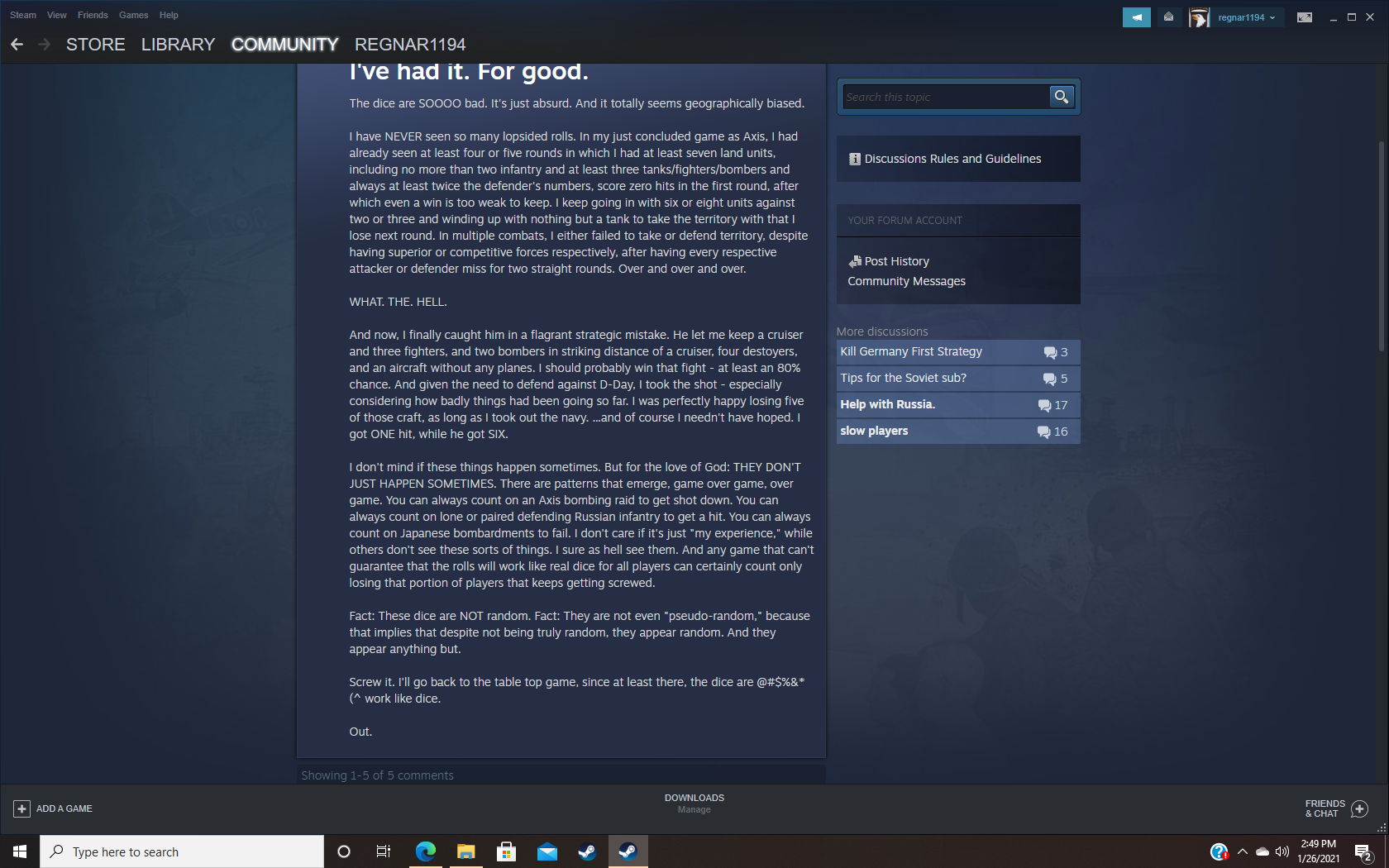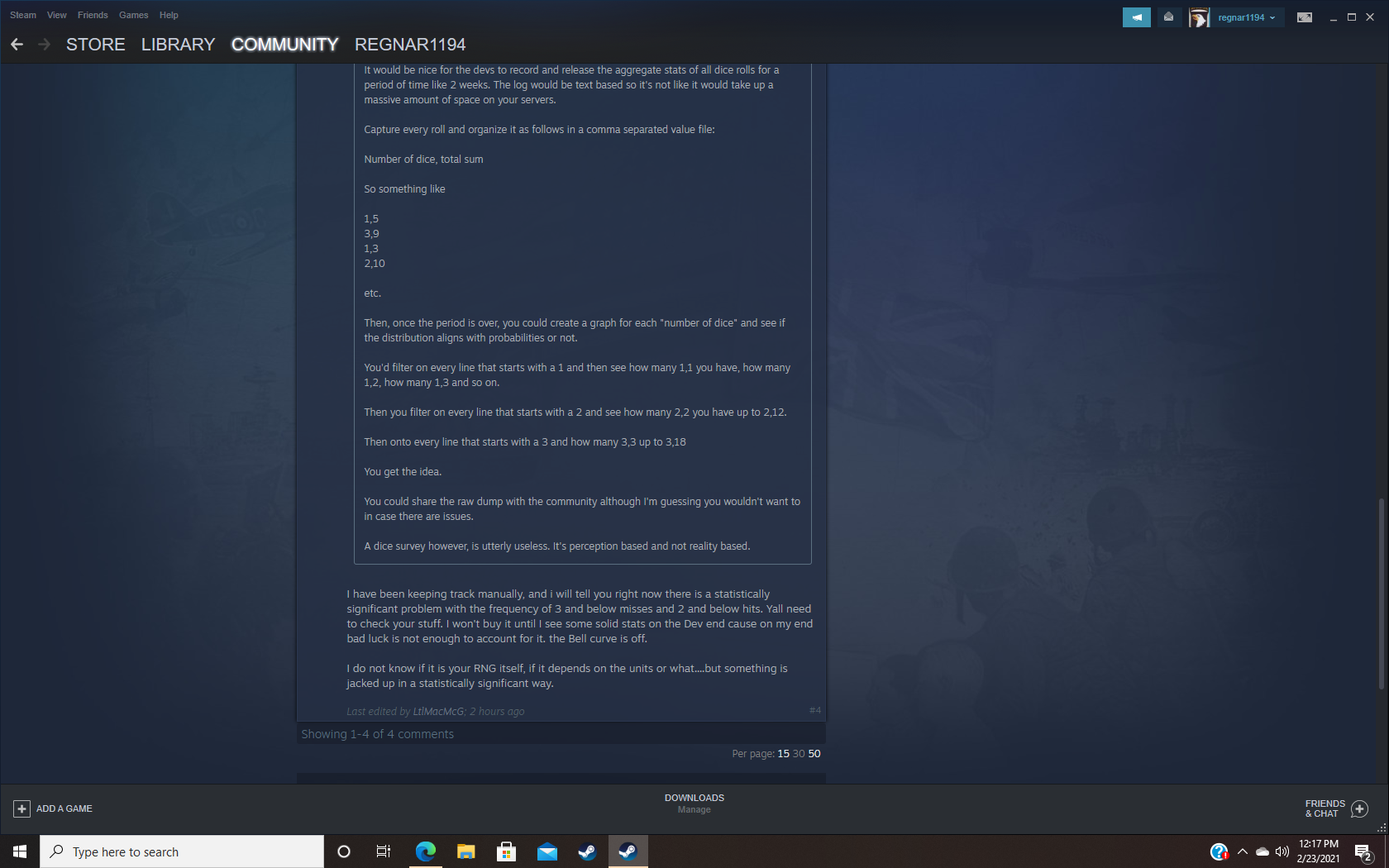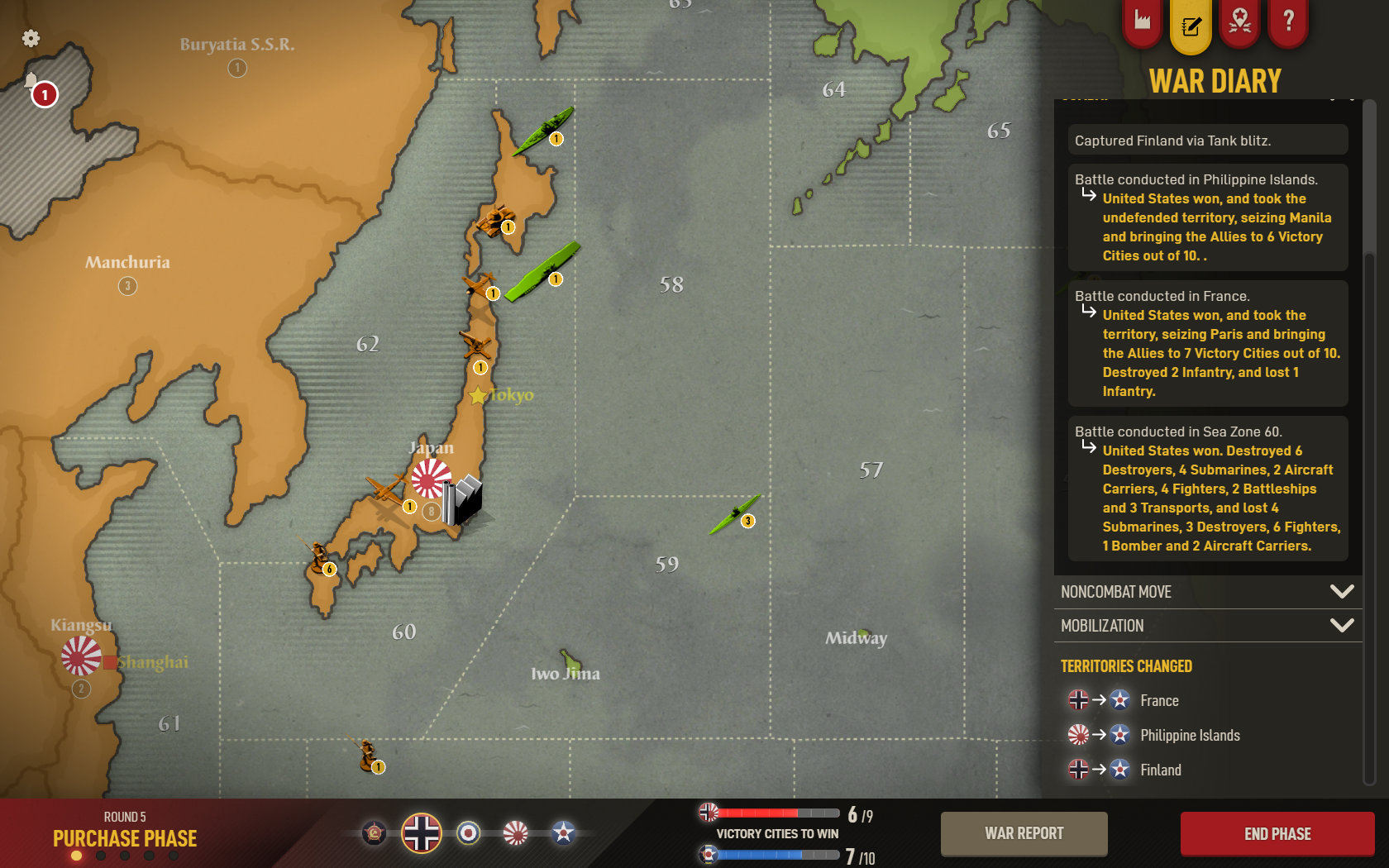@brian-cannon said in 🎲😢 PRNG dice support group — and ranting:
@eqqman So sayeth another one of the dice defenders.
Not really, as it happens. I have two major issues with the game that have caused me to quit playing twice: I don’t like being able to play only country a day in a game and then spending 23 hours waiting for my opponent to do something and I don’t like the dice outcomes (for example, I ‘feel’ like Battleship bombardments fail at a much higher rate than 1/3 of the time). The former is hardly a fault of the developers and the latter I am honest enough to admit is an opinion not backed up by any personal analysis of the dice results, it’s anecdotal.
What I -do- defend however are hypotheses backed up by data and real proofs over opinions. Read any post complaining about the dice and you will find a lot of emotion that drowns out all acceptance of the facts. The ‘facts’ usually presented are ‘I and everyone I know had a bad experience (or continue to have a bad experience) therefore the algorithm doesn’t produce a random result’. This is not a proof that withstands any scrutiny but players having a bad time expect it to be taken as gospel because they are frustrated.
Consider this example: a player rolls a single die to attack with three Fighters and three Infantry and gets 1, 2, 3, 4, 5, 6. No analysis I can think of on this data (a real math wonk can correct me here) will indicate that the dice rolls as an aggregate show anything out of the ordinary. If the player chose to roll their Infantry first, they will complain that the dice are unfair because they ‘should’ have gotten at least one hit from their Fighters. If they rolled the Fighters first they may be aware that the rolls seemed to have given slightly more hits on average but are very unlikely to complain that the dice are unfair. Player interpretation of the rolls has zero bearing on the randomness of the algorithm producing the rolls.
Anyone who swears that the dice are not sufficiently random is welcome to try the following experiment: play a game and record every dice roll that occurs and then total them up for how many times each number occurs -only-, so for example if you logged a total of 957 rolls you know that a 1 was rolled 342 times. If for example you find that by doing this over the course of several games the expected value of the dice is many standard deviations off then maybe there is something there about the dice being poorly randomized. If the person doing this experiment is also one who swears that these kinds of rolls ‘never’ happen to them in real life, I would also then recommend performing an equal number of real life rolls by hand and comparing the outcomes. Forum posters love to state that such bad luck as happens in A&AO never really occurs to them, but since no person I know has ever actually logged the results of their dice throws playing a face-to-face version of A & A such statements are supposition and not proof.
A subset of posters claiming they’ve ‘proved’ the dice aren’t random like to say things such as ‘the dice are broken because in X games I wrote down the number of AA rolls and AA hit more than Y amount of the time’. The flaw in these arguments is that probability doesn’t care if you’re rolling for AA or not. Players are adding additional layers of outcome requirements that have zero to do with genuine randomness- like AA ‘should’ hit 1/6 of the time or if every battle I fight has 80% odds then I ‘should’ win 80% of my battles. Sticking with the AA example, players complaining that AA outcomes ‘prove’ the dice are broken need to go back and do the experiment to see if the number of 1s rolled over the course of the entire game seems to be about 1/6 of the total rolls or not.
At the start I mentioned I don’t like the dice rolling either. I’m very disappointed only around 1/3 of players (I think, it was pretty low) wished for the low luck option as this makes it unlikely to be pursued by the developers. My own opinion (not fact) is that the algorithm being used produces streaks of results too frequently, giving lots of situations that result in excessive hits or misses. But this doesn’t mean that the rolls skewed too heavily one way or another over the course of a game. Our problem here is that we prefer to have a more even distribution of values over an extremely small sample size (i.e., less than a dozen rolls). I have no idea what algorithm currently developed by computer science gives this result better than the one currently in use by the game. I suspect if there was one the developers would switch to it in a heartbeat. Either way though, the minute you say ‘I want random but I don’t want streaks’ you’ve moved away from a ‘genuinely random’ system. I wrote in another post and I stand by it that nobody playing this game really wants a truly random number generation, they only want one that ‘feels’ random. Be honest- if the dice ‘felt’ right to you, would you care enough about the actual randomness to go into any in-depth analysis on if the numbers would truly be random enough? Anyone who ‘feels’ like their AA is hitting consistently 1/6 of the time should actually be suspicious since it would be odd that such a small specific subset of all the dice rolls in a game happened to have such an even distribution all on its own.
Likewise I don’t understand why players insist that the developers release some set of data for them to scrutinize. Anyone who already thinks the dice are unfair will never be convinced otherwise by looking at some imagined developer data since logic rarely trumps emotion. You can see it already in the posts where people -do- attempt rigorous analysis of the rolling only to be countered by what basically amounts to ‘don’t confuse me with facts, I know what I know’ arguments.
Apologies for the overly long response, and good luck to you with your gaming.


 This isnt me BTW, just another customer
This isnt me BTW, just another customer










